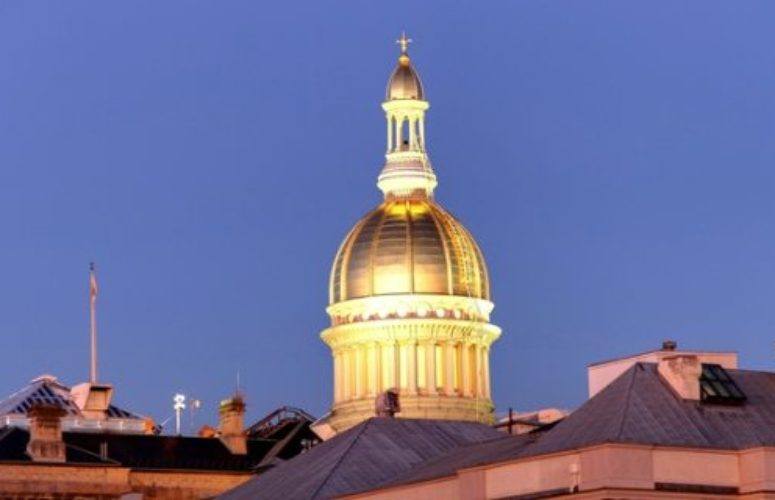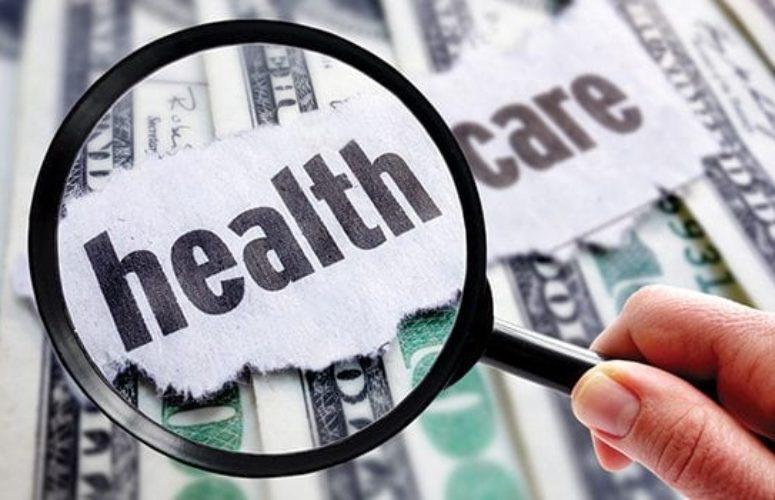
New Jersey’s Nail-Biting Election
By Anthony Birritteri, Editor-in-Chief On Nov 3, 2021It is the day after Election Day and there is still no declared winner in what has turned out to be an extremely tight governor’s race.
From last night, into this morning, underdog Republican challenger Jack Ciattarelli held a lead that hovered around 1 percentage point against Democratic Gov. Phil Murphy who, according to last week’s polls, held a 6-point to 9-point lead. This past summer, Murphy’s lead was as high as 26%.
At press-time, the race is a dead heat, with Murphy leading by 49.94% (1,201,420 votes) vs. Ciattarelli’s 49.31% (1,186,337 votes), according to unofficial results with 98% of precincts reporting. This is a margin of just 0.6%.
It is unclear when a winner will be declared, as votes from 61 districts throughout the state (many from Democratic leaning areas) still have to be counted, along with a percentage of provisional and mail-in ballots (a total of some 700,000 received).
As both candidates took to the stage at their respective election headquarters at roughly 12:30 a.m. – Murphy at the Asbury Park Convention Center and Ciattarelli at the Bridgewater Marriott – each said they want every vote to be counted.
“We are going to have to wait a little while longer than we had hoped,” Murphy said. “We are going to wait for every vote to be counted … that is how our democracy works.”
Ciattarelli commented, “I am confident that when every vote is counted, I can stand here before you and say we’ve won. I want to tell you that we are winning. We want every legal vote to be counted.”
Election night 2021 was a stark contrast to election night 2017, when Murphy was declared the winner against Lt. Governor Kim Guadagno immediately after the polls closed at 8 p.m. Murphy won that election with 55.4% of the vote vs. Guadagno’s 42.5%. Murphy had approximately 250,000 more votes than Guadagno: 1.12 million to 859,000.
With registered Democrats outnumbering registered Republicans in the state by some 1 million, the results, so far, are not encouraging for Murphy. If he does win the election, he will be the first Democratic incumbent governor to win back-to-back races in 44 years. If he loses, the trend of one-term incumbent Democratic governors continues in the state.
According to Michele Siekerka, president and CEO of the New Jersey Business & Industry Association, “Regardless what the outcome of the election is, it is good news that the state is moving back to “center – that is who we are. We are right up the middle and that is where we belong.”
She said that the state leaned heavily to the left over the last four years because of the anti-Trump sentiment, but it has now “reset itself.” She thinks that COVID fatigue and mandates on top of an already challenging business climate, are playing a role in Murphy not winning this election by wide margins. “The message to the winner is definitely to listen more closely to the needs of the business community and not take it for granted.”
This sentiment of fatigue and the state resetting itself can be seen in other competitive races in the Legislature, where all 120 seats were up for grabs, and where the Democrats currently have a 25-15 majority in the Senate and a 52-28 majority in the Assembly. Republicans need to flip 13 seats to gain control of the Assembly and flip 6 seats to win control of the Senate.
At press-time, Democrats have apparently won 15 seats in the Senate vs. 12 for Republicans. In the Assembly, Democrats have apparently won 18 seats while Republicans have claimed 10.
Here is a review of some the closely watched legislative races:
In District 2, the race for the open Senate seat left vacant by Republican Chris Brown has former Republican Assemblyman Vince Polistina (who is temporarily filling the seat for Brown) leading Democratic Assemblyman Vince Mazzeo by 4 percentage points (52.2% vs. 47.7%, respectively). In the district’s Assembly race, Republicans Don Guardian (a former Atlantic City mayor) and Claire Swift, are leading against the Democratic candidates, incumbent John Armato and Caren Fitzpatrick, by more some 3 to 4 percentage points each.
In District 3, incumbent Democratic Senate President Stephen Sweeney is trailing challenger Republican Edward Durr by 4 percentage points (48.22% vs. 51.78%, respectively). Incumbent Democratic Assemblymen John Burzichelli, chair of the Assembly Appropriations Committee, and incumbent Assemblyman Adam Taliaferro are trailing behind Republican candidates Beth Sawyer and Bethanne McCarthy Patrick by some 2 to 3 percentage points.
In the District 8 Senate race, Republican Assemblywoman Jean Stanfield is leading Democratic (and former Republican) incumbent Dawn Marie Addiego by some 4 percentage points (52.08% vs. 47.92%, respectively). In the Assembly race, both seats are open. Republican candidates Michael Torrissi and Brandon Umba are leading against Democrats Mark Natale and Allison Eckel by roughly 3.5 percentage points each.
In the District 11 Senate Race, Republican challenger Lori Annetta is leading Democratic incumbent Vin Gopal (50.33% vs. 49.67% respectively). In the district’s Assembly race, Republican challengers Marilyn Piperno and Kimberly Eulner are leading Democratic incumbents Eric Houghtaling and Joann Downey by some 2.5 to 3 percentage points each.
In District 16, where the Senate seat is open due to the retirement of Republican Christopher “Kip” Bateman, Democratic Assemblyman Andrew Zwicker is leading against Republican candidate Michael Pappas (51.63% vs. 48.37%, respectively). In the district’s Assembly race, Democratic incumbent Roy Freiman and former Montgomery Mayor Sadaf Jaffer are leading against Republican candidates Vincent Panico and Joseph Lukac III by margins of 0.02% to 1%.
What would a Ciattarelli win mean for the state’s business community?
NJBIA’s Siekerka says Ciattarelli has pledged to address what is broken in the state. “He talks about reform and no more taxes … that is what the business community needs.
“The business community has carried the water for the last four years. Pre-COVID, we had mandates and new costs of doing business that were difficult in and of themselves. Then everything changed during COVID. The business community went through the longest shutdown after the pandemic, suffering the biggest economic impact,” she said.
“We hope this election is a wake-up call that the business community is not just here to take from. We are here to contribute to the growth, economic and social advancement of our great state,” Siekerka continued. “As of late, there has been no real discussion at the table,” she said of the Murphy administration. “We deliver hard data and research and comprehensive recommendations to Trenton. While receipt may be acknowledged, there is no engagement beyond that. We may see aspects of our recommendations come to fruition, but it is without any real discourse. ”
To access more business news, visit NJB News Now.
Related Articles:





